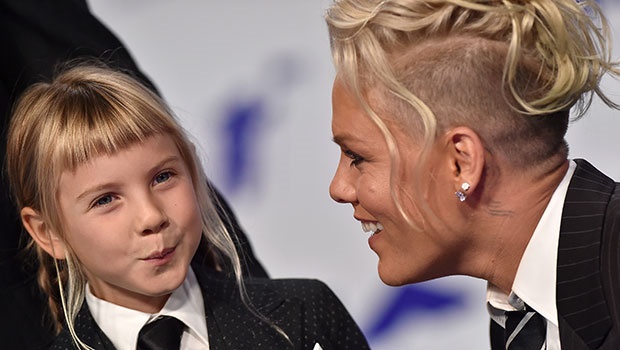
“We don't change. We take the gravel and the shell and we make a pearl. And we help other people to change so they can see more kinds of beauty”.
Those were the closing words of pop star Pink’s sermon to her daughter – on beauty.
At the Video Music Awards recently, the artist shared a story about how her daughter confessed that she thought she was the ugliest girl in school.
Pink went home to make a Power presentation filled with famous, successful musicians. Bowie, Annie Lennox, Michael Jackson, Prince, Janice Joplin all made an appearance.
Her point was not to show her daughter that you don’t have to be beautiful to be awesome, but rather that beauty is everything. And beautiful people look like a lot of things. Beauty is striking. It is different. It is inspirational. And it is proud.
Often when we’re faced with this beauty dilemma, our main or sometimes only recourse, is to focus on other more becoming traits. “You don’t have to be beautiful, you are strong” or “smart is better than beautiful”, or “beauty doesn’t bring you success”, and so in this way we have started to teach young girls that beauty is an ugly word.
READ MORE: Are you ageing wrong? (Yes, it’s possible)
Beauty has become panic. Conversations about beauty have become militant. They have one goal: To reduce comment on appearance, to remove it completely.
A woman can be defined as anything but beautiful. Because beautiful is a curse word. Who wants to be beautiful? Beauty is for reality TV, for sex tape scandals and intellectual disregard.
This may be a virtuous concept. But it is a cowardly one.
When we remove beauty from our conversation, we increase its power. When we increase its power, it grows stronger in the same way it was born: From a skewed, misinterpreted and altered perception. Which ultimately results in self-hatred and the constant self-alteration of us as women.
READ MORE: You know you've got pretty privilege when...
Its power is so strong that girls as young as seven start to fall prey to it.
No prose portrays this “norm” and its perils more vividly than Zadie Smith in her fiction work: On Beauty. In it, she writes: “This was why Kiki had dreaded having girls: she knew she wouldn't be able to protect them from self-disgust.
To that end she had tried banning television in the early years, and never had a lipstick or a woman's magazine crossed the threshold of the Belsey home to Kiki's knowledge, but these and other precautionary measures had made no difference.
"It was in the air, or so it seemed to Kiki, this hatred of women and their bodies-- it seeped in with every draught in the house; people brought it home on their shoes, they breathed it in off their newspapers. There was no way to control it.”
But there is a way to control it. We control it by talking about it and taking it back. When we include beauty in conversation we can make beauty inclusive and start to own that.
When we leave beauty out of conversations we teach our daughters they should be ashamed if they worry about it. We remove the power of their sense of self - And beauty is a sense of self just as much as any intrinsic quality. We teach them not to expect to be beautiful and that no one will ever tell them that they are and that’s fine.
We teach them that if and when someone does tell them they are beautiful (and this is almost always guaranteed to happen in life and love and everything else) they are valuable only to that one person when it comes to the currency of aesthetics. And they have no value for the beauty in themselves outside of that one person.
READ MORE: Everything that happened at the 2017 MTV video music awards
When we leave beauty out of conversations, we teach our daughters that there is no way to handle or break the power structure that surrounds it. These daughters grow up to be women, of whom society has a special kind of hatred for. And no woman is safe from the attack of a troll who will without a doubt try to break her down by going after her looks, regardless of what they are.
When we leave beauty out of the conversation, we perpetuate society’s narrow definition of it, and reiterate that our daughters have no place in that definition. When in fact it is the definition that has no place in us (as women) – at all.
Disclaimer: The views of columnists published on W24 are their own and therefore do not necessarily represent the views of W24.




 Publications
Publications
 Partners
Partners














